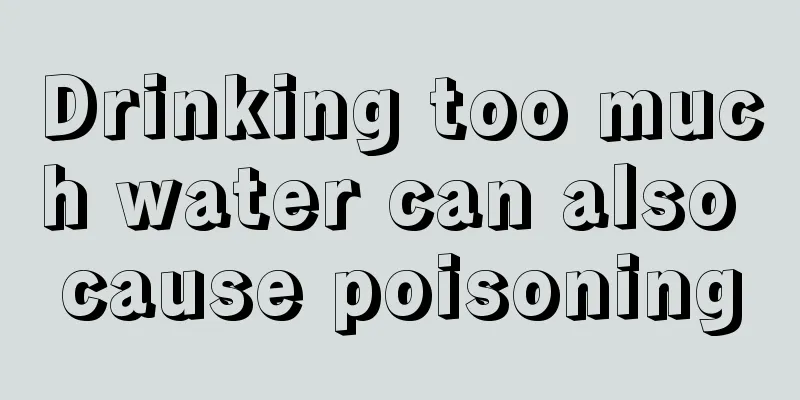What vitamins should I take if I have poor eyesight

|
Vitamin A is very good for human vision. Regularly eating foods containing vitamin A can improve the eyes' ability to adapt to the environment. Patients with night blindness can often eat foods containing vitamin A such as carrots and cod liver oil to improve night blindness and alleviate their symptoms. In fact, vitamins and trace elements are very important to human health and none of them can be missing. We need to have a comprehensive nutrition on a daily basis. 1. Vitamin A Vitamin A, also known as retinol, plays an important role in the formation of human vision. It is involved in the synthesis of rhodopsin in the retina. If there is a lack of vitamin A, the eye's ability to adapt to dark environments will decrease, and in severe cases it may lead to night blindness. Animal liver, cod liver oil, fish roe, whole milk and whole milk products, eggs, etc. are high in vitamin A. Carotene can also be converted into vitamin A in the human body, so it is called provitamin A. Provitamin A is found in high concentrations in green and yellow vegetables and fruits such as spinach, leeks, carrots, pumpkin, apricots and mangoes. 2. Calcium Calcium is the "protector" of eye tissue. Calcium deficiency in the body can not only cause a decrease in the elasticity of the retina, increased pressure in the lens, and elongation of the anterior-posterior diameter of the eyeball, but can also cause degenerative lesions of the cornea and ciliary muscles, easily leading to vision loss or myopia. Milk, beans, fungi, dried fruits and seafood are rich in calcium. When consumed with vitamin D, they facilitate calcium absorption. 3. Trace elements: selenium, zinc, and chromium Trace elements selenium, zinc and chromium can improve the function of eye tissue and prevent and treat vision loss. Foods rich in selenium include animal liver, eggs, fish, shellfish, carrots, etc.; foods rich in zinc include liver, kidney, seafood, milk, cereals, beans, nuts, etc.; foods rich in chromium include beef, black pepper, brown rice, corn, millet, semolina, edible fungi, etc. 4. Vitamin C Vitamin C can reduce the damage of light and oxygen to the lens of the eye, thereby delaying the occurrence of cataracts. Foods containing vitamin C include bell peppers, tomatoes, lemons, kiwis, hawthorns and other fresh vegetables and fruits. 5. Kelp In addition to iodine, kelp also contains 1/3 mannitol. There is a thick layer of "white frost" on the surface of dried kelp, which is the mannitol in the kelp. Mannitol has a diuretic effect, can reduce intraocular pressure, and is effective in treating acute glaucoma. Other seaweeds such as kelp also contain mannitol and can be used as an auxiliary food for the treatment of acute glaucoma. 6. Whole grains and fresh vegetables Finally, eat more whole grains and fresh vegetables, and less candy and sweets. Vitamin B and vitamin C in whole grains and fresh vegetables have a protective effect on the eyes. |
<<: How long is the appropriate time to take vitamin b1
>>: Vitamin B6 removes closed comedones
Recommend
What is the principle of nuclear magnetic resonance
Currently, many hospitals are gradually incorpora...
What is the differential diagnosis of nasopharyngeal carcinoma and what are the symptoms?
What is the differential diagnosis for nasopharyn...
Is erysipelas hereditary?
The occurrence of erysipelas is caused by many fa...
What else should you pay attention to when choosing good fruits besides looking at the outside
Faced with a variety of colorful fresh fruits in ...
Itchy little bumps on the chin
Problems such as excessive liver fire, stomach fi...
Early symptoms of endometrial cancer
In life, many patients with uterine cancer feel d...
What is the charge for tongue cancer
Nowadays, the biggest concern when going to the h...
How to diagnose renal hamartoma? Three methods for diagnosing renal hamartoma are revealed
Patients with renal hamartoma can be diagnosed th...
How to use eyebrow pencil
Eyebrow pencil can be used as a beauty cosmetic t...
What should I do if my toe is swollen
When people are walking or running, if they accid...
What to do if you suddenly faint due to low blood sugar
Many women suffer from hypoglycemia, especially y...
Why does ovarian cancer recur
The cause of ovarian cancer is still unclear, and...
How to regulate internal heat in the body
Excessive liver fire and severe internal fire wil...
How effective is the cervical cancer embolism
How effective is the cervical cancer embolism? Ce...
Is it correct to drink boiled water on an empty stomach?
Normally we often drink water on an empty stomach...









